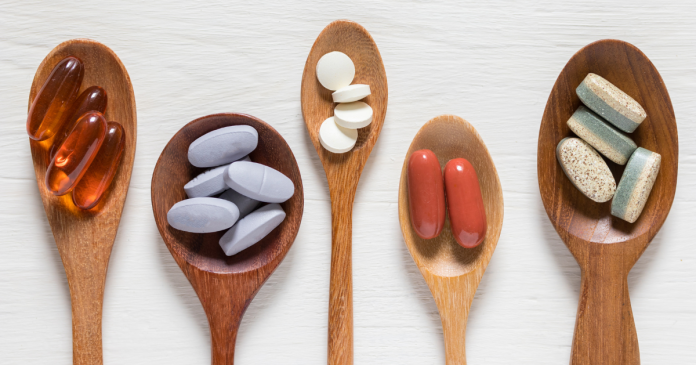There are many advertisements touting supplements for health and wellbeing, but which ones are necessary? The answer is different at every age.
Vitamins are best obtained by eating a variety of fruits and vegetables. While getting enough nutrients from your diet is ideal, you might consider adding vitamins and supplements after consulting your doctor. Each age group needs a specific vitamin and mineral.
However, regardless of your age or stage of life, remember that more isn’t better when it comes to vitamins and minerals. Taking too much of any vitamin can be toxic; in other cases, you will just excrete it in your urine.
So, here’s what you need, depending on your age group:
Your tween and teen years
In these years, it is crucial to get enough vitamin D and calcium, says nutritionist Stephanie Schiff. “We need calcium for bone and muscle growth, but it doesn’t get absorbed as well without vitamin D,” she says. “These are the bone-building years for boys and girls, and if you don’t build enough bone, you will be prone to brittle bones later in life.” According to the National Institutes of Health’s Office of Dietary Supplements, tweens and teens should get 600 international units (IU) of vitamin D per day and 1,300 mg of calcium per day. Again, it’s always best to get nutrients from our food. Some tweens and teens may have special dietary needs depending on their diet or circumstances. Make it a habit to discuss diet and nutrition with your child’s doctor during their visits.
Your 20s
Keeping up with calcium and vitamin D is still important in your 20s, Schiff says. Depending on your diet, you may also need other vitamins or minerals at this age. For example, vegans often need extra vitamin B12, mainly found in animal products.
Woman pre-pregnancy and pregnancy
Childbearing tends to occur in the 20s and 30s for many women. You should take a prenatal vitamin containing folic acid and the B-complex vitamins if you plan to get pregnant. The time to start is before you get pregnant. Folic acid reduces the risk of neural tube birth defects, and other B vitamins help support a healthy pregnancy. Taking these vitamins may also reduce your babies’ autism risk. Women with heavy menstrual periods may need extra iron too. And don’t forget calcium and vitamin D.
Your 30s
Anti-inflammatory omega-3 fatty acids will help lower the risk of heart disease. Fish like mackerel or salmon, which are fatty and good for your heart, should be eaten at least twice a week according to the American Heart Association (AHA). Also, getting enough calcium and vitamin D is especially important during your 30s.
Your 40s
Vitamin D becomes even more important in your 40s. A lack of vitamin D has been linked to many diseases, including cancer, autoimmune conditions, diabetes, and obesity, and the risks tend to increase with age. Food alone cannot supply all the D you need, and sunscreen prevents us from getting enough sun, so supplements may be needed. And don’t forget your calcium and omega-3s either, as heart disease risk climbs with age for men and women.
Your 50s
In your 50s, your calcium requirements rise to 1,200mg, and vitamin D helps your body absorb calcium. It is because now, instead of building bone, you are preserving the bone you already have. Women are at greater risk for brittle-bone diseases such as osteoporosis than men and may need to take additional measures. Women may also be entering menopause during this decade, and certain natural remedies for menopause may help reduce symptoms.
Your 60s & 70s
Calcium and vitamin D matter greatly as you get older, such as in your 60s. Make sure you are getting all that you need from food or supplements. Heart health is important too, so ensure you get enough omega-3s.
In addition to calcium and vitamin D, you may need some extra B12 during your 70s. As you get older, it’s harder for your body to make and use B12, and supplements may be needed. Foods high in B12 include clams, liver and salmon.
Your 80s & 90s
Supplemental B12 may be necessary during your 80s too. Again, keep up with your calcium, vitamin D and omega-3 during your 80s, and make sure to inform your doctor about any changes to your diet or medications.
If you’re in your 90s, keep up whatever you’re doing, as it is likely working if you are enjoying this time of life.


